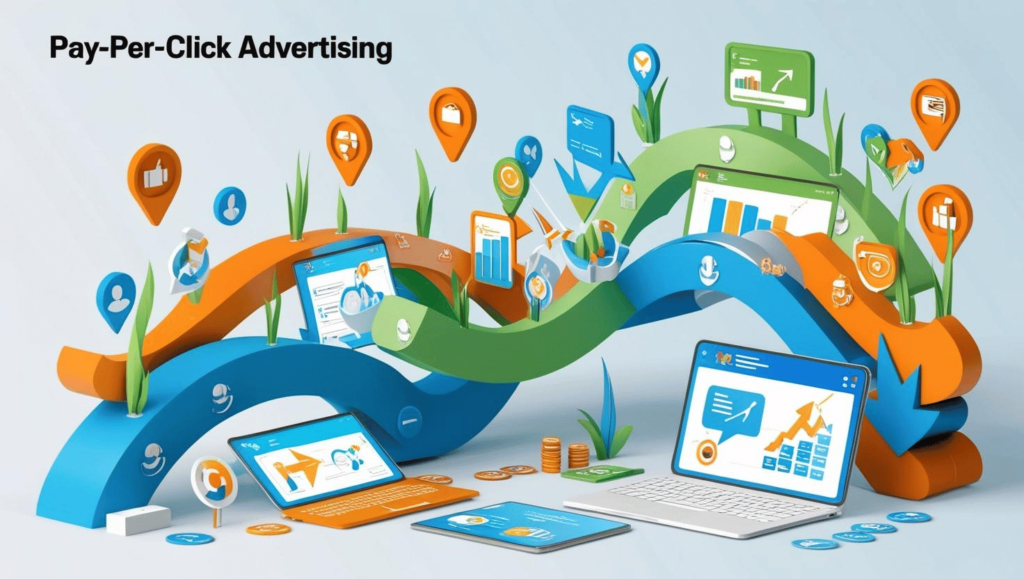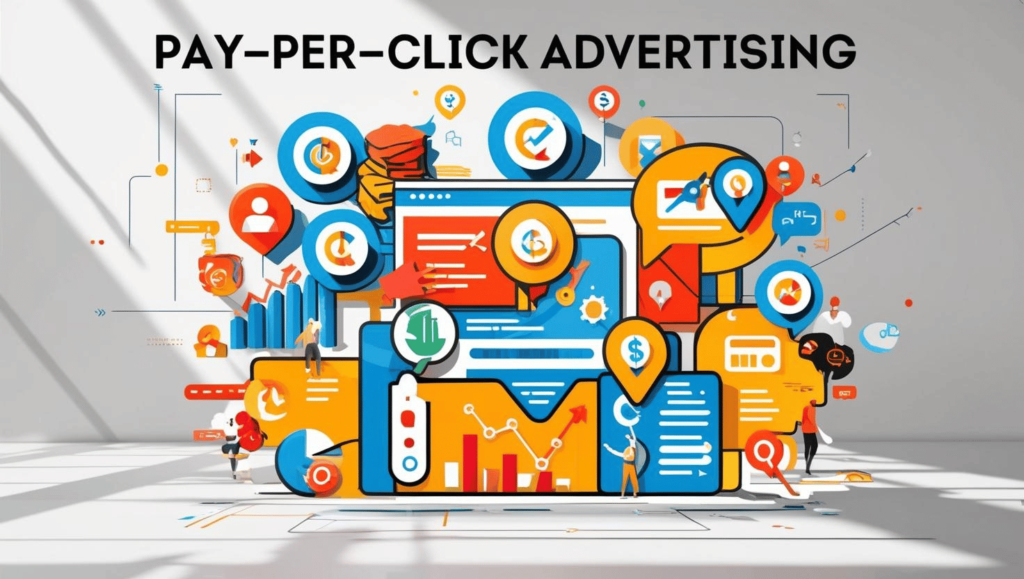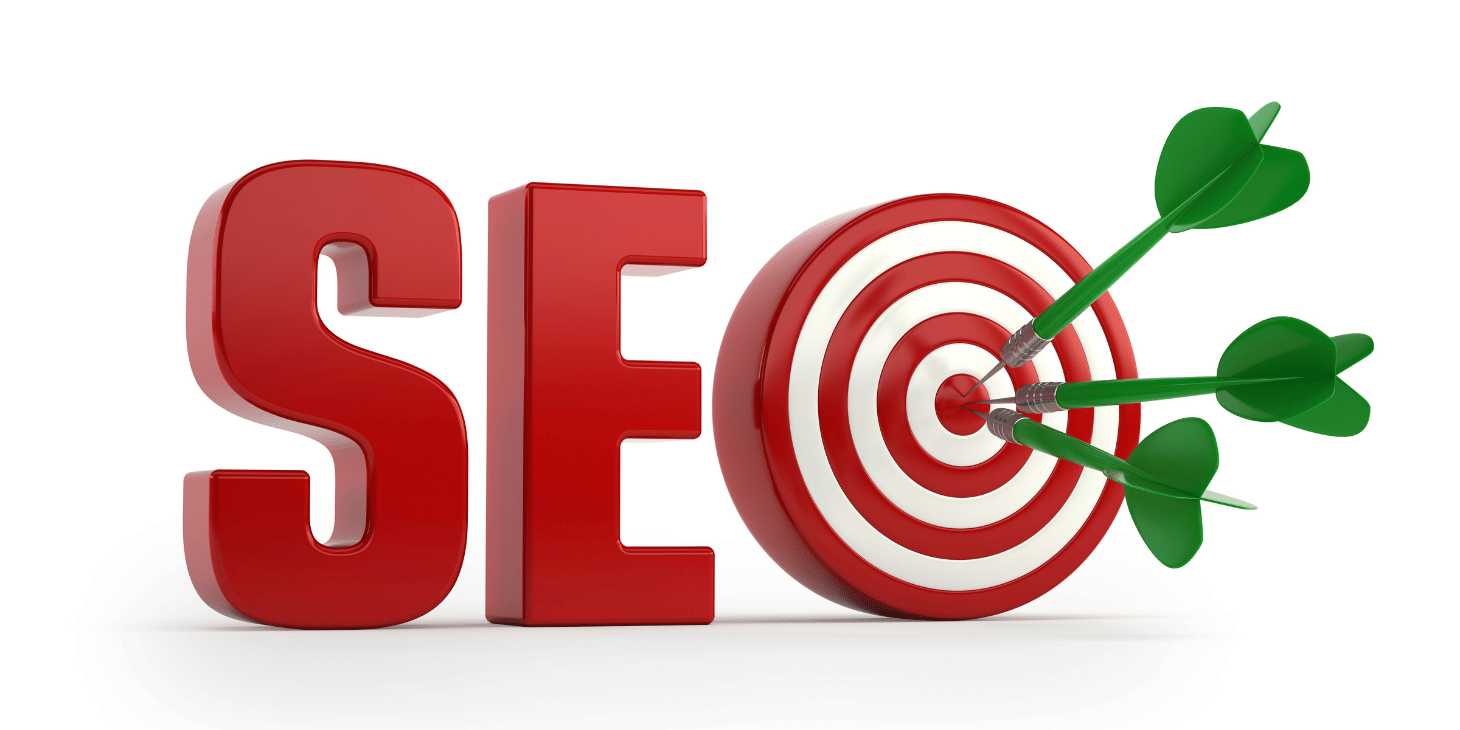Pay-per-click (PPC) marketing involves the payment of a certain amount of money to the publisher or search engine, such as Google or Bing, for every click received by the ad placed on the publisher’s website. This lets you show the advertisements to interested users looking for products or services in the business area. But is this advertisement effective enough to make a worthy investment? Let’s look at the advantages of PPC advertising and see if we should consider it a viable advertising platform.
Advantages of Pay-Per-Click Advertising

Targeted Reach
The significant advantage of PPC advertising is that you can target your ad to individuals searching for specific keywords and phrases related to your line of business. Thus, PPC is highly targeted, so you can address potential buyers with genuine interest in your offering. This results in a higher conversion rate than other media.
Measurable and Trackable
PPC campaigns enable you to set your spending limits and cap the daily/monthly expenditures. Impression, click-through rate, conversion rates, and costs may be followed as real-time results for accurately determining the campaign performance. It also makes tracking high-performing ads and keywords possible for improved efficiency in launched campaigns.
Flexibility
PPC allows the marketer to set budgets, select placements, change bids, target areas, and many other features. PPC is very flexible. You can optimize your pay-per-click advertising to cover as many markets as possible and ensure you are converting as many people as possible. In addition, this level of control facilitates the reduction of wasteful advertisement expenditure.
Faster Results
Results from PPC ads can be achieved more quickly than any other form of traditional media. In a few days, it is possible to receive traffic and leads after optimizing campaigns. This makes PPC suitable for campaigns with specific short-term objectives of creating conversions, launching a product, promos, etc.
Disadvantages of Pay-Per-Click Advertising
Costs Can Add Up
In PPC ads, the cost often rises rapidly with increased clicks, which, if not well-managed, can lead to a lack of target audience and relevant keywords. Risks include competitors pressuring bid prices upwards, as well as other competition issues. This is especially the course for small businesses where it is crucial to keep the costs checked and the budgets adhered to.
More Work Is Required
With PPC, advertisers get an extremely high level of control over their ads and campaigns but require frequent monitoring and possibly tweaking over time. If it is about designing relevant ad copy and keywords on one hand, then it is about managing bids and placements on the other hand. In general, many things influence PPC. This makes it vital for firms to have PPC specialists or hire a PPC agency to help them perform well. If PPC is not regularly optimized, the return on investment is known to drop almost as soon as it is achieved.
Results Can Vary
Coming with a disclaimer, the results obtained cannot be measured based on the investment made. The high growth you may gain one month could quickly dip the next month for various reasons like competition influx. Therefore, it is noble to manage expectations and benchmarks at monthly levels.
Short-Term Strategy

While SEO organic growth, which is formed by PPC, results in relatively stable and constant further development in the future, businesses cannot build their growth solely on PPC. It works very well for small-scale objectives but is most effective as part of more extensive digital marketing strategies for depth.
Weighing the Pros and Cons
In weighing the pros and cons, it is revealed why pay-per-click is such a good strategy for getting quick, focused customer gain: measurability, flexibility, and targeting – balanced against the burdens of cost and time. Synergized with more extensive strategies such as SEO, having PPC operate as a concurrent, iterative star bringing results for direct audience and sales maintains the growth circle spinning for firms.
Conclusion
Although pay-per-click advertising poses some difficulties–such as increasing costs and time to spend on campaigns–the key benefits inherent to the activity, including selectivity, controllability, and flexibility, make it advisable, especially for the short-term objectives and selective acquisition of clients. However, when implemented in line with more significant, more general digital marketing strategies centred on the organic process, PPC advertising can prove to be a highly efficient feat in terms of return on investment.
PPC, like any other marketing campaign, requires research, planning of goals and objectives, tracking, and continuous optimization. Companies that are willing to invest this are in the right place to benefit from pay-per-click advertising.






